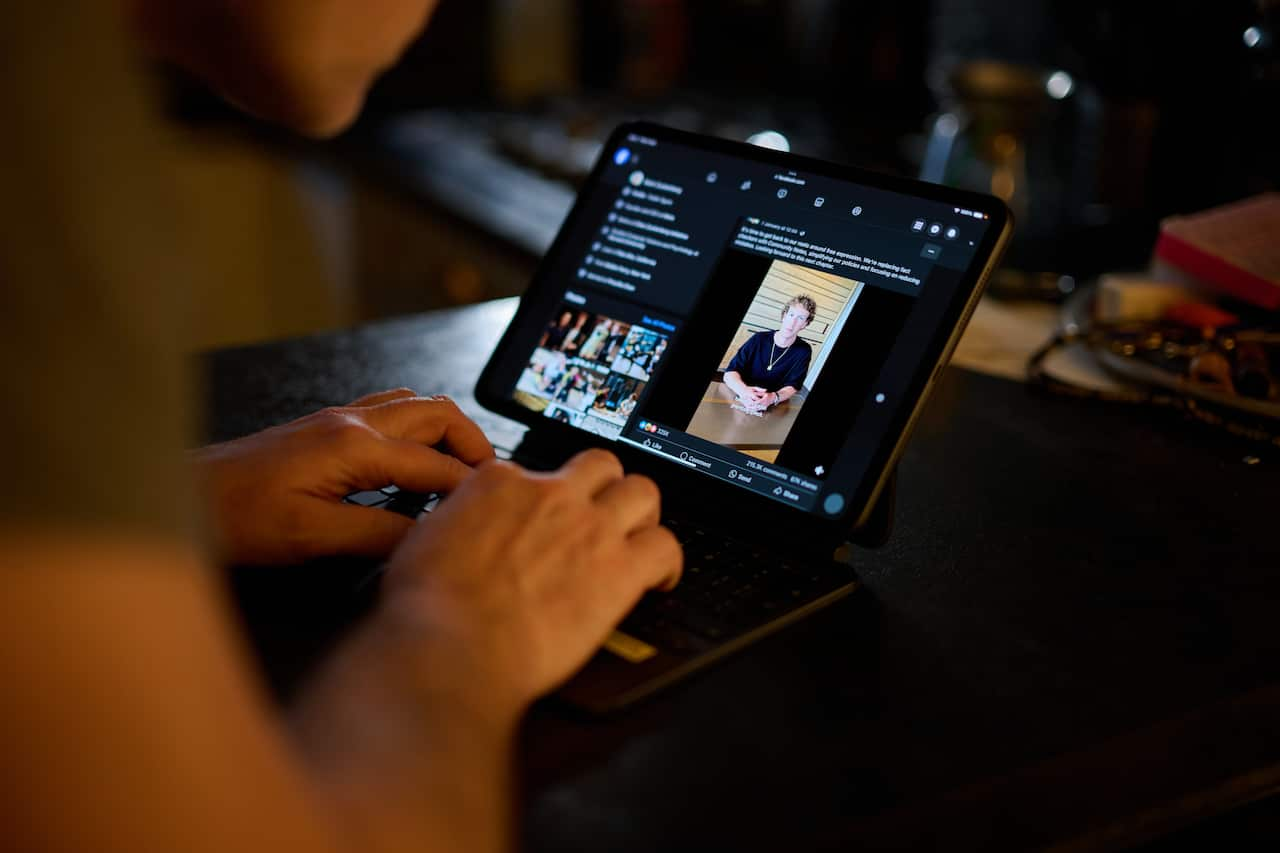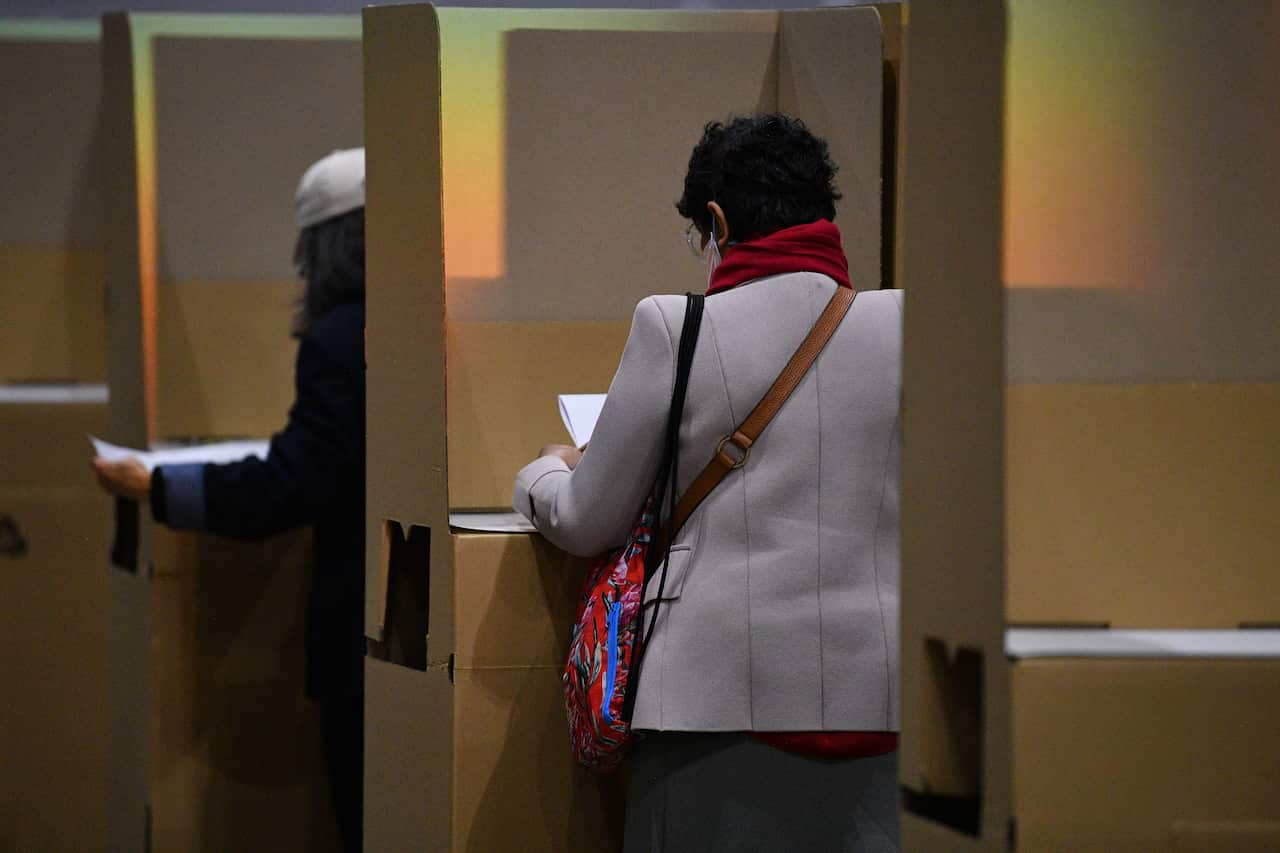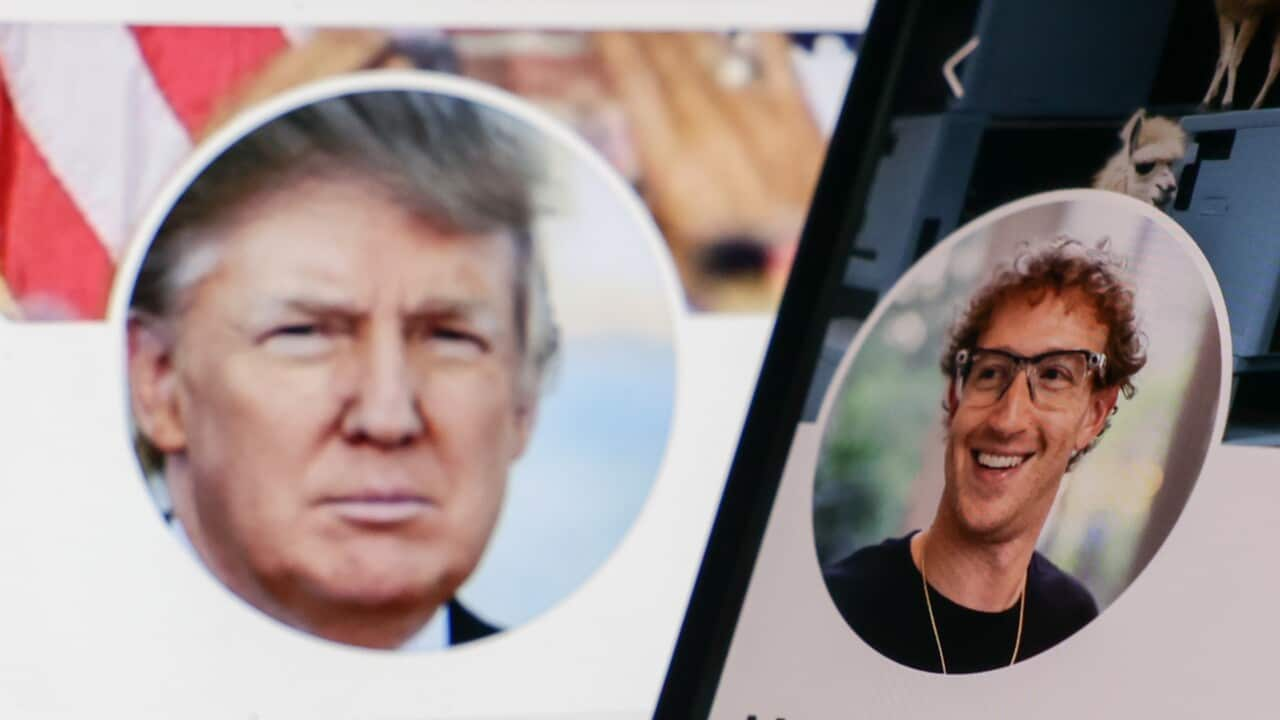Meta’s on its United States platforms might be isolated to the country at this stage, but experts say Australians have reason to be concerned.
Mark Zuckerberg — the boss of Meta, which owns Facebook and Instagram — announced the decision this week, directly attributing it to what he described as the “cultural tipping point” of the US presidential election, in which Republican Donald Trump beat Democrat Kamala Harris .
Zuckerberg — who said the move was among a series of measures aimed at strengthening political content and free speech — referred to Trump in his announcement on Tuesday.
While the changes are limited to the US at this point, he was clear in his criticisms of other countries’ restrictions on Meta’s platforms.
“We’re going to work with President Trump to push back on governments around the world,” Zuckerberg said.
“They’re going after American companies and pushing to censor more. The US has the strongest constitutional protections for free expression in the world.”
The announcement has drawn condemnation from some experts and Australian politicians, with a former Facebook executive labelling it a “step back for social media overall”.
‘A major strategic shift’
Zuckerberg’s support for Trump is viewed as an effort to reconcile his relationship with the president-elect following his , which also included Zuckerberg donating $1 million to his inauguration fund.
Trump has been a harsh critic of Meta and Zuckerberg for years, accusing the company of bias against him and threatening to retaliate against the tech billionaire once back in office.
Ned Watt is a researcher in digital communications at the Queensland University of Technology and specialises in independent fact-checking.
He said while it’s still too early to predict the exact outcome for Australian moderators and users of Meta’s platforms, Australians should be concerned about this change.
“Zuckerberg did state that this was only in the US, but I think that this is a major strategic shift and perhaps ideological shift in terms of its content moderation policy,” he said.
“I think that there’s going to be ripples of implications for independent fact-checking and independent fact-checkers around the world.”
Meta boss Mark Zuckerberg announced this week that the company’s US platforms would scrap the use of third-party fact-checkers. Source: Getty / NurPhoto / Jaap Arriens
Watt believes there will likely be “implications” for “vulnerable online communities”, such as women and members of the LGBTIQ+ community.
He said Meta’s independent fact-checkers follow the International Fact-Checking Network’s principles of transparency and impartiality, which Watt argued are lacking in Meta’s new ‘community notes’ approach, similar to platform X.
But perhaps even more concerning, he said is the risk of promoting harmful content under Meta’s pledge to boost political content and foster free speech.
“I think this absolutely risks amplifying hate speech and divisive rhetoric online,” Watt said.
“That is something that we should be concerned about — how are powerful actors going to use these changes in content moderation, and who is really going to have the right to exist and to speak on these platforms without being excluded or drowned out by the voices of others.”
Dr Philip Pond is a senior lecturer in digital media research methods at the University of Melbourne.
He said promoting political content will most likely result in the amplifying of a specific type of conservative Trumpian or Make America Great Again discourse.
Pond believes Meta would like to allow more content creators that are “pervasive” on and onto its platforms.
“I think it’s far more likely you’ll have a homogenisation of content across those platforms,” Pond said.
Fact-checking not perfect
Pond was careful to point out that the work of moderators has not entirely prevented misinformation on social media platforms.
“I’m not sure we should kid ourselves into thinking that there’s currently a golden age of truth on Facebook that’s about to be lost — there’s not; that’s nonsense,” he said.
“Fact-checking has historically been of very limited effect in terms of steering our discourse around this kind of virtuous path of truth.
“That’s just not what happens, but whatever effect it has had for good will obviously go.”
Stephen Scheeler, former Facebook chief executive for Australia and New Zealand, said the move was “a step backwards for social media overall”.
But he noted local sentiment towards fact-checking differs from the US perspective, partly due to Trump’s re-election.
“The political winds have now changed,” he told the ABC on Thursday.
“The idea of having third parties moderate that content is not fashionable in Washington; it’s not fashionable with Donald Trump.
“Mark Zuckerberg wants to get back in Donald Trump’s good books.”
Could Meta’s move impact Australian federal election?
Australia is in a federal election year — — and it comes as misinformation and disinformation is on the rise, according to Treasurer Jim Chalmers, who labelled Meta’s changes “very concerning”.
“We’ve seen it (misinformation and disinformation) explode in the last few years, and it’s a very damaging development for our democracy,” Chalmers told the ABC on Thursday.
Scheeler says that even if there were broader implications from Meta’s changes, Australia’s could dampen the impact of potentially harmful information.
“The less time misinformation has to flow, the less impact it can have,” Scheeler said.
Pond said misinformation on social media is certainly something Australians should be concerned about ahead of the federal election, as Australia’s social and political landscape is heavily influenced by the US.
But he said it’s a very complex issue to address, and relied too heavily on social media companies to be responsible for protecting the truth.
“Fact-checkers only have value if you think truth has value; truth only has value if we as a society, as individuals, care about truth and value it,” Pond said.
The next Australia federal election must be held on or before 17 May this year. Source: AAP / James Ross
Watt shared Pond’s concerns, saying election campaigns are heavily influenced by social media platforms.
“The flows of power in technology, these kinds of changes, really puts the emphasis and responsibility on the user, which is an enormous responsibility to police the information and kind of narratives that they’re exposed to,” Pond said.
“And I think that this is a win for media manipulation and a big change to the information environment.”
But other experts like Terry Flew, a digital communications professor at the University of Sydney, said it’s important not to overestimate social media’s influence on elections and voting behaviour.
“Why particular voting trends are happening is tied up with a lot of factors,” he said.
“People are not simply blank slates who then go onto social media and form an opinion.”
The Australian Communications and Media Authority (ACMA) highlighted in a statement that Meta’s announcement about changes to fact-checking processes only relates to the US.
It said there’s apparently no immediate plan to make changes to the program in Australia, but ACMA will monitor changes that may affect Australian users on Meta platforms.
Meta is a signatory to the Australian Code of Practice on Disinformation and Misinformation, and it has committed to a range of initiatives, including with third-party fact-checking organisations.
SBS News has contacted the eSafety commissioner for comment.


